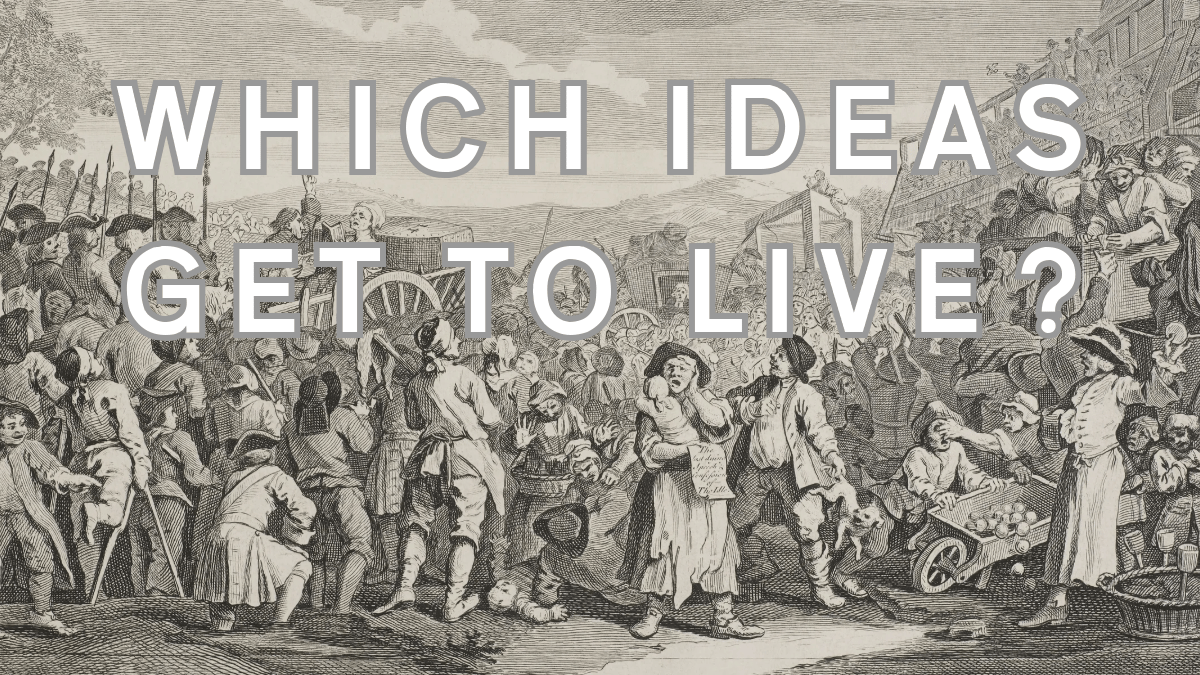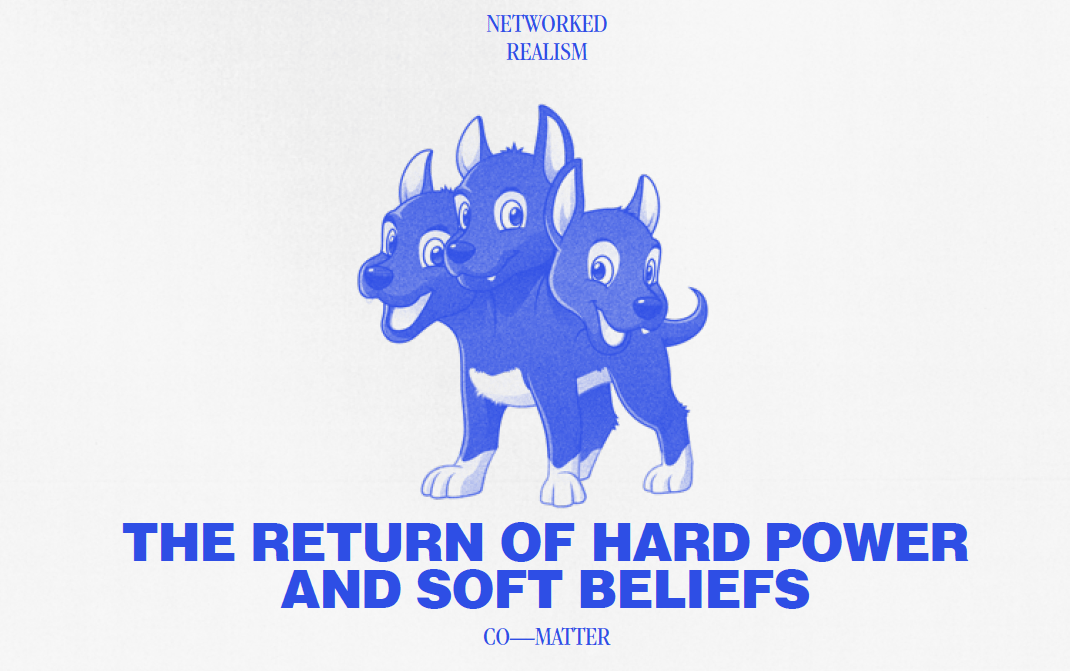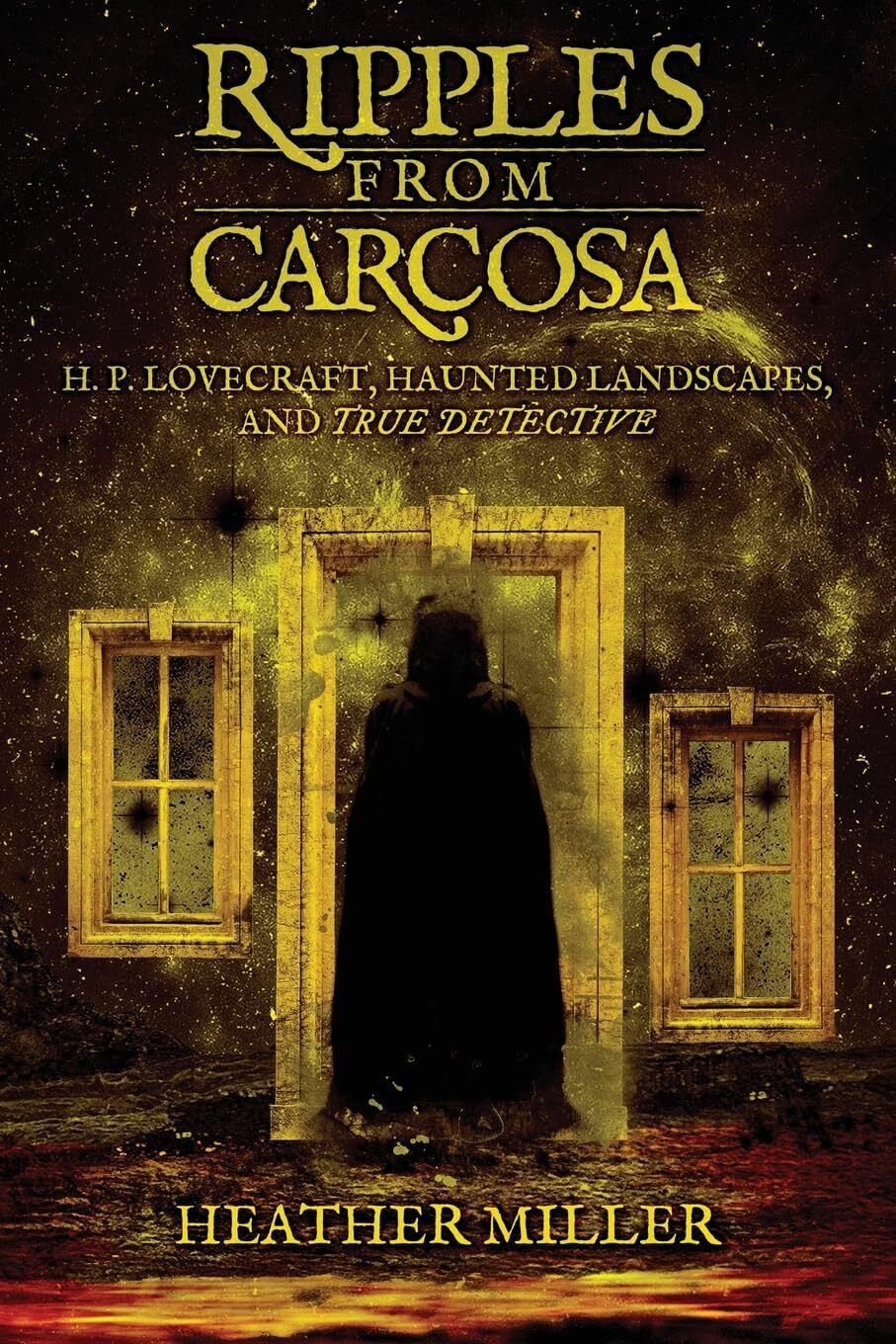- Orbital Operations
- Posts
- Which Ideas Get To Live?
Which Ideas Get To Live?
Orbital Operations for 27 July 2025

Hello from out here on the Thames Delta. What kind of week has it been? In Denver, Colorado, Catholic priests in training were revealed to have been subjected to a yeti blood cult initiation.
Your week may have been shit, but it wasn’t as bad as that.
Writer and musician Brian Ekberg dropped a note to ask: “Once you've latched onto an idea, how do you sort through its development? Specifically, how do you separate wheat from chaff? How you identify which ideas are worth pursuing and what you do when you get stuck?”
Which ideas get to live?
This is an awful question to ask anyone, not least because everyone has their own personal answer that won’t translate to anyone else’s method. But let’s have a little look at it.
I have a folder called “Loose Ideas,” which contains all the story ideas that had a beginning but didn’t have a middle or an end. Because, once you have a great idea for a story and you’ve figured out how it opens, the first question is “what happens next?” You might even have the beginning and the ending, but if you’ve got no middle, it isn’t a story. I have a ton of files with an idea and an opening I liked, and a rough idea of the end - but I started telling the story of how I get from start to finish and dried up.
If you can’t find six or twelve interesting things to have happen between the beginning and the end, then put the idea away. “Interesting things” doesn’t always mean plot points.
Maybe you’re a “seat of the pants” writer and you don’t structure. You’re a genius and I admire the shit out of you. Maybe you’re a planner, and this is where you come unstuck. I fall in the middle. I need maybe half a dozen signposts between the beginning and the end. I can’t plan a thing in heavy detail, or it loses all its juice.
But if I can’t find those signposts, or develop a feeling for what happens beyond the initial idea? Then it’s chaff. You’re looking for the story you don’t want to stop writing, the one that keeps suggesting new moments to you.
I’m writing two things for myself now. side projects that I’ll probably put on LTD after September 1. One has a full set of signposts, the other is just a character notion and genre space. The first has plenty of space to invent freely, the other is really just going to be making it up as I go along. Try both. If you run out of steam, put it in a safe place and come back to it another day. Nothing is wasted.
Letters about the creative life by Warren Ellis, a writer from England. Was this forwarded to you? Subscribe here for free.
I have largely de-teched myself until September 1. On September 1, all the things get re-attached and turned on. I’ve been testing the Bee AI listening device I was gifted, and have found uses for it. It and the Rabbit R1 are now capable of sending me emails, so I can tell them to search for things and email me the results to process later.
EDITED TO ADD: Bee was just purchased by Amazon, so I expect my Bee to stop working in six months.
It’s not, as someone wrote in to comment, learning things for me. It’s finding things for me to learn later while I’m busy doing something else, complete with sources I can follow up on and suggested further reading.
Always avoid actual chat with a chatbot. Chatbots are driving people nuts. Don’t use it to create material - it will always read like a bot and creating things is a human joy you should not surrender to a computer. Just give it instructions and check its work later.
I’m curious about the Natura AI HumanPods. Also, please witness this peculiar ad for the Omi Glass smartglasses:
I’m doing a lot of planning for September 1. I even bought a phone tripod to do video with. We’ll see if I actually use it.
CURRENTLY READING:
MISSING PERSON: ALICE, by Simon Mason. First of The Finder Mysteries, which I’ve been meaning to start for a while now. They’re said to be quite Georges Simenon-ish, and also to have a touch of the nouveau roman about them, and I love both those things. The Finder - and people just call him Finder - is a specialist in the field of missing persons. So far, it’s a contemplative investigative novel, with an interesting chilly tone of reportage that vaguely reminds me of JG Ballard’s RUNNING WILD. (UK) (US)

NEW WORLD ORDER 2025, “a 35-page research memo about what happens when power, infrastructure and ideology collide,” released by Co-Matter through Metalabel as a pdf for USD $5 .
This is a memo for anyone trying to make sense of the present. It contains ideas, context and language to participate in shaping the world that emerges in front of our eyes.

Now: THE DEPARTMENT OF MIDNIGHT audio drama podcast, DESOLATION JONES: THE BIOHZARD EDITION, THE STORMWATCH COMPENDIUM, THE AUTHORITY Compact Edition, the LIGHTS OUT Anthology, I really have to update this bit of the template.
If you like this newsletter, do me a favour this week and tell just one other person about it.
While I’m in analogue coastal cave hermit mode, this would be a good time to get in touch if you want to do something together this year, in any field of writing and production work. Hit reply to this email to drop us a note. I’m keeping my calendar open until probably the end of September to add new projects.
This letter has been zapped to you via Beehiiv and is sponsored by:
Join over 4 million Americans who start their day with 1440 – your daily digest for unbiased, fact-centric news. From politics to sports, we cover it all by analyzing over 100 sources. Our concise, 5-minute read lands in your inbox each morning at no cost. Experience news without the noise; let 1440 help you make up your own mind. Sign up now and invite your friends and family to be part of the informed.
It’s rained all week here, but next week should be nice. Let’s go outside for a bit and turn the internet off. I think we earned it. Take care.
W
I’m represented by Angela Cheng Caplan at the Cheng Caplan Company and David Hale Smith at Inkwell Management. Please add
to your email system’s address book or contacts.

